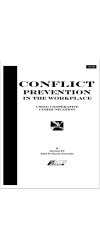When sending e-mail always reread what you have written before sending it on. Read it twice (at least) — once for content (does it say what it should) and once for tone (does it accurately reflect your emotional state). Keep in mind that people will read it like a letter, so being exceptionally terse, short-winded, using too much slang, etc., can be problematic with respect to accurately portraying your feeling.
If face-to-face communication requires the use of cooperative communication techniques, e-mail needs it even more, since it lacks the ability for on-the-fly correction if something you write sounds harsh, arrogant, authoritarian, absolute or uses hot words. Once you send e-mail you can’t erase it or correct it.
E-mail has evolved a set of symbols designed to convey emotional state. These are used mostly on the Internet to convey that an email poster is joking or angry, or sad. These can be problematic for people who don’t understand their meaning, or who read e-mail quickly (a very common occurrence). While you can use these little graphics, it is better to be very clear about your emotional state in the body of the email. For example, if you have a concern about a project, convey HOW concerned you are. Is it a big deal or a little one? If you don’t address this specifically, the other person has NO way of knowing, and is going to react as if it is a big deal.
Keep in mind that e-mail is a poor medium for conflict resolution and even constructive problem solving because it is sequential and lacks the brainstorming type feature that can occur in face-to-face communication. Consider using e-mail as an adjunct to face-to-face or telephone problem-solving rather than as a replacement. E-mail can best be used to move information and facts around, but is limited in situations that require dynamic direct simultaneous interaction. When you sense that an e-mail exchange with a colleague is getting emotionally charged, it’s time to take it to face-to-face or telephone IMMEDIATELY
When communicating in public forums with strangers (via the Internet) understand that you will meet people who, because of the anonymity of the Internet medium, are going to be rude, poor communicators who feel no responsibility for the effects their communication might have. Much public Internet communication is inflammatory. The best path of action is a) to ignore such people or b) to stick to the issues and not take the bait they
offer.
Remember that e-mail communication is an “instant” medium. That means that despite your best efforts, there is no guarantee that the person receiving the email will take the time to read slowly and carefully. In fact the opposite is more likely.
When misunderstanding or conflict emerges from even a well-thought out email you have sent, don’t overreact. Consider that such things are a result of two things–the nature of the medium, and people not yet having learned how to make use of it properly.




